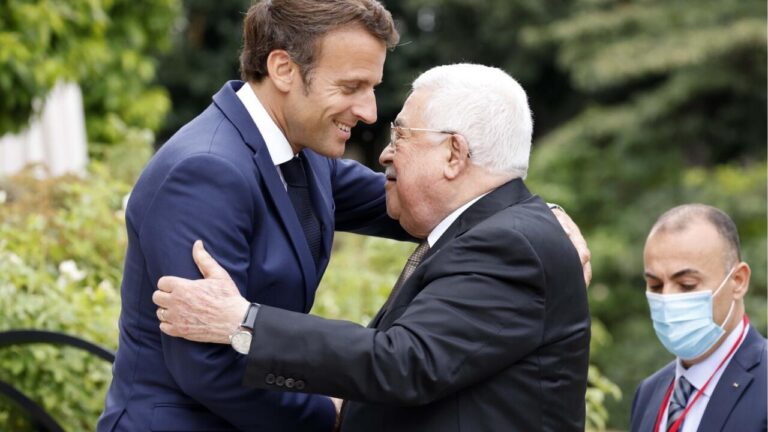France’s recent decision to recognize the state of Palestine has ignited a wave of reactions across the globe, stirring intense debate over its implications for Middle East diplomacy. As one of Europe’s key powers takes this bold step, reactions range from praise for advancing Palestinian statehood to warnings of jeopardizing fragile regional negotiations. This article examines the spectrum of international responses, analyzing whether France’s move will be seen as a historic milestone in the quest for peace or a reckless departure from established diplomatic strategies.
France’s Bold Move on Palestine Sparks Diplomatic Turbulence
France’s recent decision to officially recognize Palestine as a sovereign state has unleashed a wave of reactions across the globe, reshaping diplomatic alignments and stirring heated debates. Advocates hail the move as a historic step towards justice and peace, emphasizing that it may pressure all parties to revive stalled negotiations. Meanwhile, critics warn of potential instability in an already fragile region, arguing this could exacerbate tensions with Israel and its allies, potentially hindering future dialogue efforts.
Responses from international players vary widely, reflecting the complex geopolitical landscape:
- European Union: Mixed reactions, with some countries expressing cautious support while others urge restraint.
- United States: Strong condemnation, reaffirming commitment to Israel’s security and the two-state solution via direct talks.
- Middle Eastern States: Many welcome France’s move as a bold show of solidarity, while some remain skeptical about its practical impact.
| Country | Reaction | Impact |
|---|---|---|
| Germany | Calls for balanced dialogue | Possible diplomatic mediation |
| Turkey | Strong support for Palestine | Increased regional influence |
| Israel | Formal protest lodged | Heightened alertness |
| Saudi Arabia | Welcomes peace efforts | Encourages negotiations |
Diverse Global Reactions Reveal Geopolitical Divides
France’s unprecedented move to officially recognize the state of Palestine has elicited a spectrum of global responses, sharply delineating existing geopolitical alliances. Western powers, traditionally cautious on the issue, voiced a mixture of concern and pragmatic acceptance. The United States, reaffirming its longstanding support for Israel, condemned the decision as “counterproductive,” warning it may impede peace negotiations. Conversely, countries in the Global South, particularly in Africa and Latin America, lauded France’s stance as a courageous step toward rectifying historic injustices and advancing self-determination for Palestinians.
Reactions Worldwide:
- Middle East: Divided; traditional allies praised the move, while others warned of increased regional tensions.
- Europe: Generally cautious; some governments expressed solidarity, whereas others called for restraint to maintain regional stability.
- Asia: Mixed reactions with emphasis on diplomatic dialogue and non-interference.
| Region | Typical Reaction | Political Impact |
|---|---|---|
| North America | Condemnation | Strained US-France ties |
| Middle East | Mixed | Heightened tensions |
| Europe | Cautious Support | Debates on EU foreign policy |
| Africa & Latin America | Supportive | Enhanced diplomatic relations |
Analyzing the Impact and Urging Strategic Dialogue for Peace
The international community’s varied reactions to France’s unprecedented move have illuminated the complex geopolitical landscape surrounding the Israeli-Palestinian conflict. Many analysts observe that the recognition injects a fresh sense of urgency into what has often been a protracted and stagnant peace process. However, concerns linger about the potential for increased tension and whether this act will catalyze constructive negotiations or entrench divisions further. Political leaders worldwide are weighing the legal and diplomatic ramifications, with some viewing the decision as a bold step toward legitimizing Palestinian statehood, while others warn of destabilization risks.
Moving forward, the imperative focus must be on fostering open dialogue that embraces the perspectives of all stakeholders. Several core elements have emerged as critical for any sustainable peace effort:
- Inclusive negotiations: Ensuring both Israeli and Palestinian voices lead the discussion.
- International mediation: Leveraging neutral parties to bridge divides and maintain momentum.
- Security guarantees: Addressing fears on both sides to reduce violence and build trust.
| Stakeholder | Expected Response | Key Priority |
|---|---|---|
| France | Supportive | International legitimacy |
| Israel | Critical | Security concerns |
| Palestine | Welcoming | State recognition |
| United States | Mixed | Peace facilitation |
The Way Forward
As the international community continues to debate France’s landmark decision to recognize the state of Palestine, reactions remain deeply divided. Supporters hail the move as a courageous step toward advancing peace and justice in the Middle East, while critics warn it risks destabilizing fragile diplomatic balances. Whether viewed as reckless or historic, France’s recognition marks a significant moment in a longstanding conflict-one that will undoubtedly shape regional and global politics in the months and years ahead.



